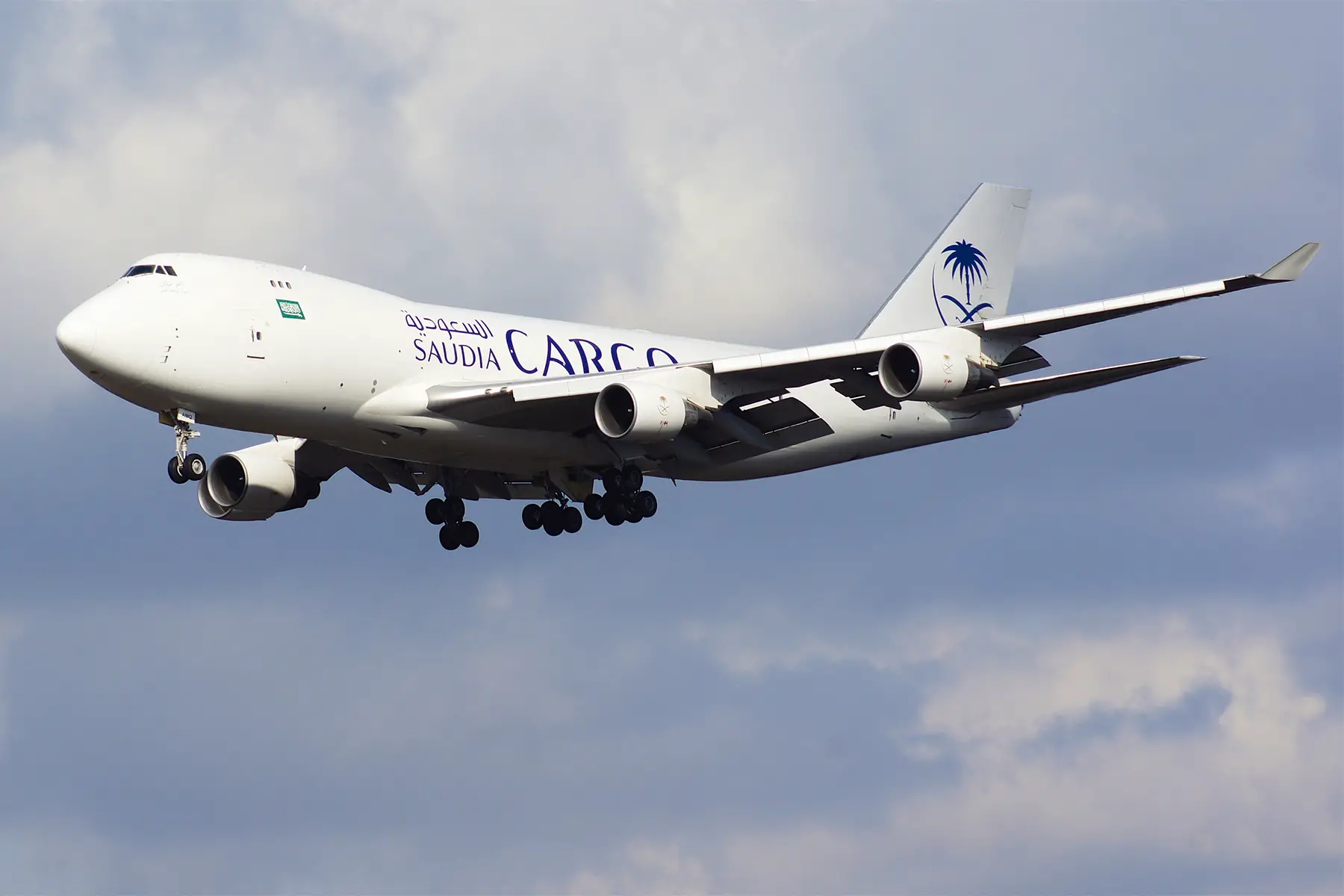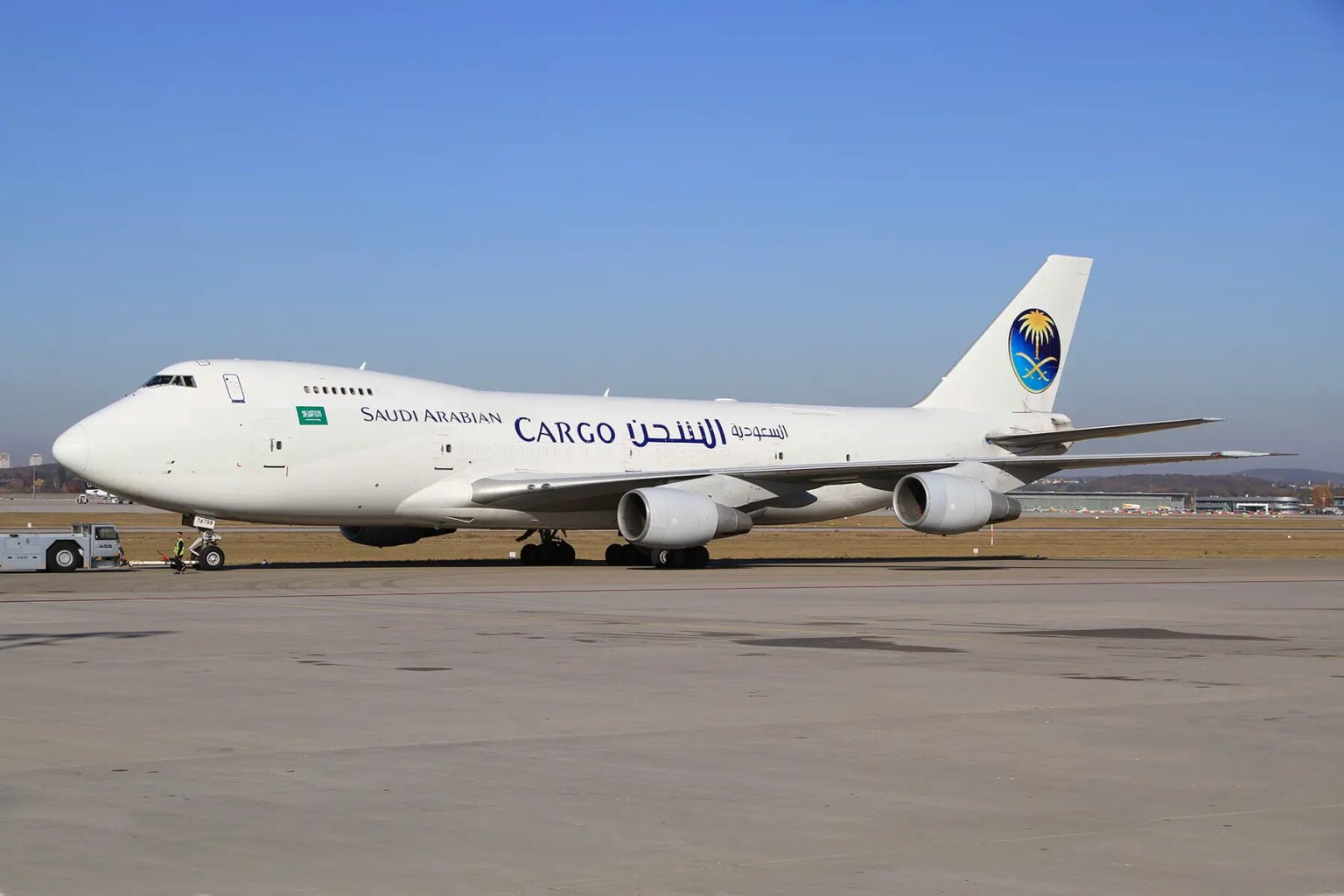Saudi Arabia offers many exciting prospects for intrepid expats. Indeed, a relatively low cost of living, high salaries, and a favorable tax system are just some of the factors that attract internationals to this emerging digital hub. Of course, good job prospects and financial gain are not the only reasons people choose to move to the Kingdom. Low crime rates, a robust healthcare system, and rich culture also make it highly appealing to expats.
So, if you are considering moving there, this article walks you through your options when it comes to arranging your removals to Saudi Arabia, including the following:
The Relocator
Starting a new life in Saudi Arabia? Take the stress out of the move to your new home by finding the right international removals options with The Relocator. Compare a number of trusted international movers and get a free quote in minutes.
Relocating to Saudi Arabia from abroad
In recent years, Saudi Arabia has grown in popularity among internationals seeking exciting new opportunities due to the many advantages it now offers. Indeed, a slew of new policies designed to attract foreign talent has helped this nascent digital hub attract many expats.

But like with any relocation, arranging your removals to Saudi Arabia comes with many considerations. Aside from dealing with issues such as organizing work permits, finding a place to rent, and setting up a bank account, you need to decide how to move your personal belonging to your new home.
Because most people arriving in the Kingdom choose to ship their goods by air or sea, we will focus on these processes in this article.
How to relocate to Saudi Arabia with air freight
While there are several airports in Saudi Arabia, most people fly into Jeddah or Riyad. These are home to the Kingdom’s busiest airports; King Abdulaziz International Airport, which handles over 37 million passengers, and King Khalid International Airport, which handles more than 29 million.
There is also Prince Mohammad bin Abdulaziz International Airport in Medina and King Fahd International Airport in Dammam. However, non-Muslims are banned from the former and the latter is in a less convenient location for expats. Notably, Saudia Cargo is the Kingdom’s flagship cargo carrier and operates mainly out of Jeddah and Riyadh.
Who should use air freight?
Because there are limited flights and space shortages, arranging removals to Saudi Arabia by air freight can be very expensive. As such, most people would not choose this option. However, if you are moving with just a few personal belongings, it could be a quick and convenient solution. Similarly, it could be useful to just ship the most important goods by air and send the rest using another method.
The environmental impact of air freight is another factor to consider when making your decision. Unfortunately, cargo flights have a big carbon footprint and are not an environmentally friendly option. In fact, long-haul air freight generates 47 times more greenhouse gas emissions than ocean freight, per ton-mile.
How air freight works
Although it does involve a lot of effort and paperwork, the process for arranging removals to Saudi Arabia via air is straightforward. To begin with, you should understand what you need to do to organize your move. For instance, you need to decide which goods you are sending and whether you have the time and ability to pack everything yourself or if you need to hire professionals. After this, you can do some research to find the best air freight quotes for your move.

Once all the above is settled, you will then need to assemble all the documents you need for air freight shipments. Notably, if you use a professional company, they can help with much of this. That said, you will still need to provide a lot of the information yourself.
Below are some of the documents you will need for your move to Saudi Arabia:
- Passport
- Detailed packing list
- A commercial invoice (in triplicate)
- Air Waybill or Bill of Lading
- Insurance certificate
- Customs documentation
- Original certificate of origin
- Label noting shipment’s country of origin
- Import permits (as necessary)
Of course, packing is an important part of relocating overseas and there are several ways to approach it. For instance, if you are using a full-service relocation company, this will often include the services of professional packers who will do everything for you.
Of course, you can also choose to do it yourself if you can pack everything properly for transport. You or the company will then take the packages to the airport and board them on a flight to Saudi Arabia. On arrival, your goods will have to clear customs. Your moving company should be able to handle this for you, but if you need to do this yourself, you will have to go to the relevant airport with all the necessary documents. After this, your goods can be transported to your new home.
Air freight timings
Air freight is the fastest way to transport your belongings to Saudi Arabia. As such, it is a good choice for expats who need to move very quickly and need their goods immediately.
Typically, your air freight shipment can travel from its country of origin to its destination in just a few days. For example, air cargo from the UK to Saudi Arabia usually takes between two and eight days to arrive.
That said, the exact time will depend on which airports your shipment goes through. As such, London Heathrow Airport to Riyadh Airport might take five days, while Manchester Airport to Riyadh Airport may only take three. This includes the time it takes to clear customers on arrival in Saudi Arabia. You can use an online calculator to work out the shipping transit times.
Air freight costs
As mentioned, air freight can be expensive due to a lack of cargo space and flights. International air cargo rates also rose significantly during the COVID-19 pandemic as a result of severe disruptions in ocean freight and high consumer demand. As a result, air cargo rates now range from US$4.00 to US$8.00 per kilogram.
Naturally, the exact cost of your shipment will depend on its weight and volume. This is because most shipping companies will quote and calculate your final price according to your shipment’s volumetric weight or gross weight, which includes freight, packaging, and pallet. There are also other fees that can raise the cost of your air freight shipment. Therefore, you should ask your carrier about fuel surcharges, airline handling costs, and customs clearance fees when they send you a quote.
Packing options for air freight
There are several options when it comes to packing your removal to Saudi Arabia and naturally, you should consider what works best for you. Most major relocation companies offer professional packing services and branded boxes, which can give you peace of mind that your goods are securely packed for transport. However, you can also choose to pack your air freight shipment yourself.

We have already highlighted the issue of sustainability with air freight. But unfortunately, this can extend to packing, too, as many companies use new cardboard boxes for this. Therefore, if you are concerned about the environmental impact of your move, you should ask the company if they recycle these boxes or if they can provide reusable plastic crates instead.
Finding an air freight company
Fortunately, many major relocation companies offer air freight services. For small shipments, you could also try courier companies that offer air cargo, such as DHL and FedEx. However, if you feel confident about handling everything yourself, you could actually work directly with an airline that offers cargo services. For example, you could try booking a shipment with Saudia Cargo, the national flagship cargo carrier, if they fly to your nearest airport. You could also try companies such as IAG Cargo or Air France KLM Cargo.
Relocating to Saudi Arabia with sea freight
Geographically, Saudi Arabia is the largest country in the Arabian Peninsula and maintains strong trade ties with many nations. As such, there are 10 major ports to handle the large volume of sea freight. Jeddah Islamic Port is the busiest in the region, but other important ones in the Kingdom include:
- Dammam King Abdulaziz
- Dhuba
- Gizan
- King Fahad Industrial Port Yanbu
- Jubail Commercial Port
- Ras al Ghar
- Ras al Mishab
- Ras Tanura
Because many of the ports specialize in commercial, oil, or military shipments, your goods will probably arrive at Jeddah, Gizan, or Dhuba.
Who should use sea freight?
Sea cargo is the most affordable option for larger shipments, which makes it a popular choice among expats moving to Saudi Arabia. As such, if you are planning to move a lot of personal belongings – such as furniture, kitchenware, and books – this is likely your best option. Similarly, if you are moving from a country outside of the Gulf Cooperation Council (GCC) or the Middle East region, ocean freight will be an easier and cheaper solution. Moreover, sea shipments have less of an impact on the environment which is an advantage. That said, shipments are often very slow and can take months to arrive in Saudi Arabia. As such, you might want to look for another option if you need your belongings immediately.
How sea cargo works
Although there are many similarities, the process for ocean freight is a little more complicated than for air freight. Nevertheless, you will still need to start by working out how much you are moving and how much professional help you need.

There are three ways to book sea freight, and you should understand these in order to figure out which will work for you. Full Container Loads (FCL) are ideal for families and those who have a lot of belongings as you can have an entire container to yourself. If you have fewer goods, however, then Less Than Container Loads (LCL) might better suit your needs. For small moves, on the other hand, Groupage will also work. This is also a very affordable solution.
You should also take into account timings. For instance, FCLs can be booked for specific dates, which means that they can ship faster. However, LCLs and Groupage are subject to extra steps and the consolidation of goods which can slow down the process.
You will normally work with a relocation company to arrange sending ocean freight and this comes with many advantages. For example, they will handle most of the paperwork and professionally pack everything for transport. They will also manage the customs clearance process, which usually takes 24 hours in Saudi Arabia. That said, you will still need to organize a lot of paperwork for sea shipments, such as a commercial invoice, packing list, certificate of origin, and Bill of Lading.
Sea freight timings
Although it is more affordable, sea freight is significantly slower than air freight. As such, you can expect to wait several weeks for your goods to be delivered to your new home. For example, ocean shipments from the UK to Saudi Arabia usually take three to five weeks, excluding customs and domestic transport. To give you a concrete idea of times, FCL shipments traveling from London Gateway to Jeddah take 20 days, while Liverpool to Jeddah can take 31 days. You also have to factor in a few extra days – possibly up to a week – for customs clearance and transport.
Maritime freight costs
While sea freight is a far more affordable solution for shipping your belongings to Saudi Arabia, you still need to figure out how much you are sending and whether you need FCL, LCL, or Groupage. This is because your removal company will need this information to provide you with an accurate quote.
Ocean freight usually costs between US$2 and US$4 per kilogram. The exact cost of your move, however, will depend on whether you choose to ship with FCL or LCL. For example, a 20-foot FCL traveling from the UK to Riyadh will cost at least GBP1,690. Conversely, a 500kg LCL shipment on the same route would cost around £700. There may also be additional costs for terminal fees, insurance, documentation, and customs.
Packing options for sea freight
As with air freight, you have two packing options for sea freight. Your removal company can pack everything for you with the help of professional movers or you do this yourself. If you are looking for eco-friendly packing options, you could also try to use reusable or recyclable boxes or plastic crates.
Finding a sea freight company
Even if they have not moved to Saudi Arabia themselves, your expat friends should be able to provide recommendations for reliable movers. And luckily, all of the major full-service companies will be able to manage a sea freight move for you.
You can also find recommendations and quotes on the following websites:
International relocation companies
Many expats planning on relocating to Saudi Arabia decide to enlist the help of a full-service international relocation company. This is because they offer a range of useful services and can organize seamless, hassle-free moves. In addition to physically packing and transporting your goods to your new home, relocation companies will usually offer extra services that can be very useful when moving to a new country too, especially if you don’t speak the local language.
For example, some companies provide specialized car and pet transport services, can help you choose a good school for your children, find a new apartment or home, and even help you with applying for visas and utilities. However, as a result, the fees for these companies can be much higher than outfits that offer simple pack-and-move services. In fact, they could charge you anywhere from US$1,000 to US$10,000.
How to find an international relocation company
As always, when it comes to looking for reliable movers, it is best to get recommendations from people who have made the move to Saudi Arabia. This is a tried-and-tested way to get a company you can trust, and you will often find helpful tips and hints, too. If you want to do your own research, though, you can simply search online to find international moving companies that also operate in Saudi Arabia.

Notably, it is best to speak to a few companies before making a decision, as this will help you find the best movers for your relocation and budget. Below are some platforms that allow you to compare moving companies.
DIY versus using a relocation company
There are many ways of managing a move to Saudi Arabia. However, one of the things that you will have to decide first is whether you want to do it yourself or hire a professional company to take care of it for you. There are, of course, arguments for both sides.
For instance, if you have the time and skills required to pack all your belongings yourself and navigate the customs process, then you can easily do it. And, of course, if budget is a concern, this might be the best way to go. However, if you have a lot of things to move and are concerned about dealing with customs in Saudi Arabia, then hiring a moving company will prove to be a much less stressful experience. This is especially true if you don’t speak Arabic.
Relocating vehicles and pets to Saudi Arabia
Saudi Arabia can be very strict when it comes to bringing your pets and cars into the country. However, it can be done if you are willing to make the effort.
Importing pets to Saudi Arabia
Although pet ownership has not been historically popular in the Kingdom, a more modern mindset among the fashionable sets and upper classes is driving an increase in domestic pets. That said, expats should be aware that because Saudi Arabia is a Muslim country, dogs are commonly thought of as unclean and generally not allowed in public areas.

Of course, in many cases, you can still bring your pet to Saudi Arabia with you. You just need to ensure that you have all the right paperwork, which a moving company can help you with, too.
You will need to arrange the following in order to bring your pet to Saudi Arabia:
- ISO-compliant microchip
- Rabies vaccination at least one month (but not more than six months) before travel
- Up-to-date vaccinations as appropriate for the species
- Import permit from the Saudi Arabia Ministry of Agriculture
- Saudi Arabia animal health certificate completed by a vet within 14 days of travel
- Letter to the Saudi Arabia Director of Customs to notify them of the import and request an entrance pass
All pets enter Saudi Arabia at the Riyadh, Jeddah, or Dammam airports and must undergo a vet inspection on arrival. Additionally, certain dog breeds – such as Great Danes, Boxers, and Rottweilers – are banned from the Kingdom. As such, you should check the full list before making the move.
Importing cars to Saudi Arabia
As with pets, it is possible to import and drive your car into Saudi Arabia. However, you will need to follow certain guidelines and obtain all the appropriate documents.
Below are the requirements for importing a car into Saudi Arabia:
- The car should not be more than five years old
- The car should be completely undamaged
- Owner/importer should have a valid Iqama (Saudi Arabian identity card)
- You can only import one car per person per year
- 4WD imports are only allowed for families
- Cars from Israel cannot be imported
- The car must be suitable for right-hand drive, with the steering wheel on the left side of the car
You will also have to present the following documents:
- Copy of passport
- Copy of Iqama
- Authorization letter
- Copy of your driver’s license
- Original certificate of ownership (verified by Saudi embassy)
- Police clearance
- Bill of Lading
- Conformity certificate
You will also have to pay customs duty for importing your car. However, this will depend on your particular car as the rate is calculated at 5% of the CIF (cost, insurance, and freight) value. After it has cleared customs, you will have to present your car for an inspection and register it locally.
Customs and importing goods into Saudi Arabia
Saudi Arabia’s Zakat, Tax and Customs Authority oversees all customs procedures in the Kingdom. Therefore, you will have to deal with them when moving to Saudi Arabia.
Generally, Saudi Arabia imposes customs duties on all goods coming into the country. This can vary from 5% to 20% depending on the goods, but there are certain exemptions. For example, a ‘reasonable’ amount of clothing and books can be imported duty-free. There are also some goods that are prohibited or strictly controlled. For instance, photos, books, DVDs, and CDs are subject to inspection and censorship. Additionally, things like weapons, animal skin, alcohol, pork products, and Christmas trees are strictly banned from the Kingdom.






